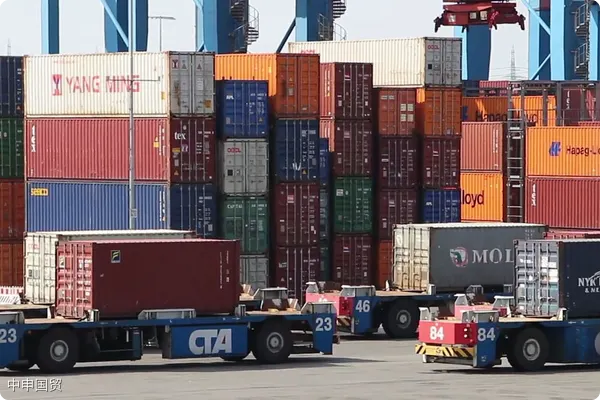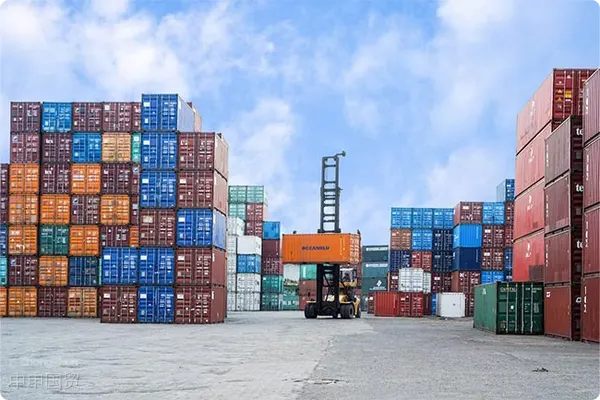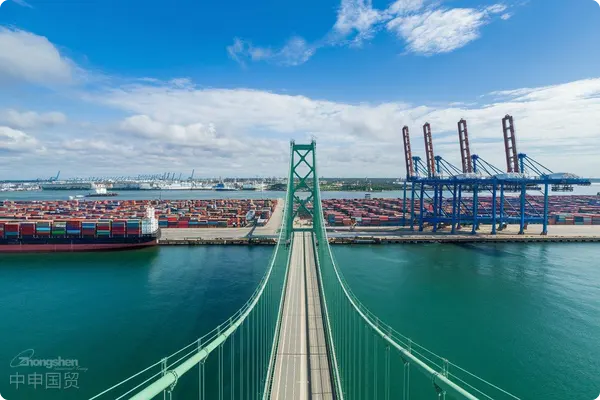- Shanghai Zhongshen International Trade Co., Ltd. - Two decades of trade agency expertise.
- Service Hotline: 139 1787 2118

In international trade, agencyExport Drawbackis a service of critical importance to businesses. However, the market is flooded with mixed-quality agencies, making it challenging for companies to identify legitimate export tax rebate agencies. Understanding the characteristics, key considerations, and evaluation methods of legitimate agencies can help companies make the right choice, protect their interests, and smoothly conduct export tax rebate operations.
I. Characteristics of Legitimate Export Tax Rebate Agencies
Complete Qualifications and Licenses
Legitimate export tax rebate agencies must first possess valid business qualifications. This includes registration with the industrial and commercial department, obtaining the relevant business license, and clearly covering export tax rebate services in their business scope. Additionally, some regions may require agencies to have specific industry licenses or filings, such asforeign tradeforeign trade operator filings, etc. The completeness of these qualifications and licenses is the foundation for judging an agencys legitimacy.
Professional Team and Extensive Experience
A professional team is the core competitiveness of a legitimate export tax rebate agency. Its team members should include professionals familiar with international trade rules, tax regulations, and customs clearance procedures. They need the ability to handle various complex tax rebate tasks, such as calculating rebates for different product types and meeting special customs supervision requirements. Agencies with extensive experience can often handle unexpected situations, such as quickly resolving issues during strict tax audits to ensure the smooth progress of the tax rebate process.
Good Reputation and Word-of-Mouth
In the market, legitimate export tax rebate agencies usually have a good reputation. This can be evaluated by checking customer reviews and industry reputation. For example, inquire with peer companies about the service quality and tax rebate success rate of a particular agency. In the internet era, you can also check the companys ratings and customer feedback on online platforms. An agency with frequent negative reviews such as delayed tax rebates, poor service attitude, or fraudulent behavior is clearly unreliable.
II. Key Considerations When Choosing
Service Scope and Customization Capabilities
Different enterprises may have varying export tax rebate needs. A legitimate agency should offer comprehensive services covering all aspects from tax rebate applications, document review to communication and coordination with customs and tax authorities. Additionally, it should have the ability to provide customized services based on the enterprises specific circumstances. For example, large enterprise groups may require integrated tax rebate solutions involving multiple subsidiaries and different product lines, while small enterprises may need simpler, more efficient, and cost-effective basic tax rebate services.
Reasonable Fees
Fees are a crucial factor when selecting an export tax rebate agency. Legitimate agencies will set reasonable fee standards—neither excessively high for excessive profits nor too low, which may indicate hidden charges or poor service quality. Enterprises should thoroughly understand the agencys fee structure, whether it is a fixed amount, a percentage of the tax rebate amount, or includes other miscellaneous fees. At the same time, compare the fee levels of similar agencies in the market to ensure the chosen agency offers reasonable and competitive pricing.
Data Security and Confidentiality Measures
Export tax rebate services involve a large amount of sensitive enterprise information, such as financial data and business details. Legitimate agencies must prioritize data security and confidentiality. This includes using secure information management systems, encrypting data storage and transmission, implementing strict internal confidentiality policies, and restricting employee access to enterprise data. When selecting an agency, ensure it can provide effective data security measures to prevent commercial risks arising from information leaks.import and exportIII. Evaluation Methods
On-Site Visits and Interviews
Enterprises can conduct on-site visits to prospective export tax rebate agencies to assess their office environment and facilities, which can reflect the agencys strength and legitimacy to some extent. Additionally, through interviews with the agencys management and professional team members, enterprises can gain deeper insights into their business processes, service philosophy, and their ability to understand and respond to enterprise needs. During the interview, enterprises can present actual tax rebate cases or questions to observe whether the responses are professional and accurate.
Case Studies and References
Studying the agencys past successful cases is an effective way to evaluate its capabilities. Legitimate agencies are usually willing to provide typical cases for reference, including the scale of the enterprises served, industry types, tax rebate amounts, and key factors for successful rebates. By analyzing these cases, enterprises can better understand the agencys performance in practice and determine whether it meets their needs.
Choosing a legitimate export tax rebate agency is crucial for enterprises to smoothly conduct international trade and protect their interests. Enterprises need to comprehensively consider factors such as the agencys qualifications, team, reputation, service scope, fees, and data security, and make careful and informed decisions through evaluation methods like on-site visits and case studies. Only in this way can enterprises leverage the agencys expertise to achieve efficient and compliant export tax rebate operations and enhance their competitiveness in the complex international trade environment.
Conclusion
Exploring Professional Export Tax Rebate Services: How to Choose
Related Recommendations
? 2025. All Rights Reserved. 滬ICP備2023007705號(hào)-2  PSB Record: Shanghai No.31011502009912
PSB Record: Shanghai No.31011502009912










